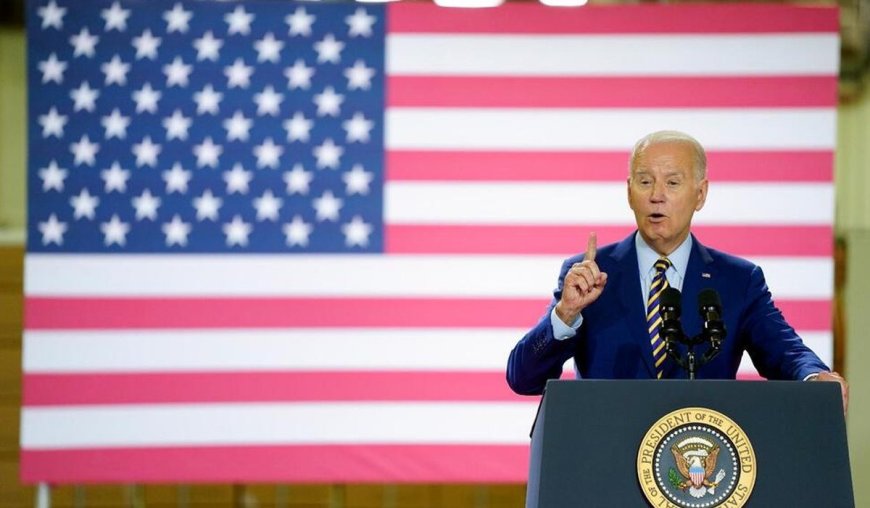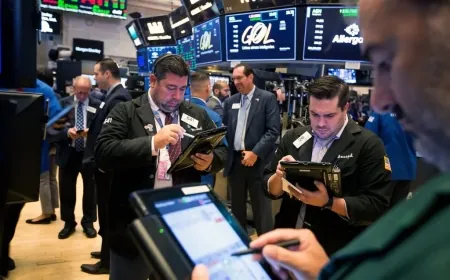Biden Administration Raises Concerns Over Tech Giant Dominance in Stock Market
Read about the Biden administration's concerns over Big Tech's dominance in the stock market and the Federal Trade Commission's efforts to curb potential monopolies. Learn how Lina Khan is leading the charge against tech giants and the impact of gig workers on the US economy. Find out about the film industry's resurgence and challenges in the midst of evolving economic landscapes.

A recent report by Bank of America has unveiled an alarming reality - seven tech giants, namely Apple, Microsoft, Alphabet, Amazon, Nvidia, Tesla, and Meta Platforms, collectively account for nearly $11 trillion in market value. These companies have contributed to about 75% of the S&P 500 returns during the first half of 2023, sparking concerns about their growing influence and dominance within the stock market.
The soaring success of Big Tech has captured the attention of the Biden administration and the Federal Trade Commission (FTC), raising worries that this group, often referred to as the "magnificent seven," might evolve into monopolies. The fear is that they could stifle competition and impede the growth of innovative startups, ultimately maintaining their stronghold.
A pivotal figure at the forefront of addressing these mounting challenges is Lina Khan, the 34-year-old Chair of the FTC, widely recognized as one of the agency's most progressive leaders in history. Her tenure marks the beginning of a new era in antitrust governance, aiming to challenge decades of lenient policies surrounding mergers and acquisitions that have allowed tech giants to absorb competitors and emerge as trillion-dollar market cap companies.
Despite Khan's unwavering efforts, the anticipated impact on tech giants is yet to be seen. For instance, Apple recently surpassed a remarkable valuation of $3 trillion, a historical milestone unmatched by any other company. Additionally, the FTC's attempt to block Microsoft's $69 billion acquisition of videogame publisher Activision Blizzard was unsuccessful. Likewise, a similar case involving Meta Platforms' purchase of virtual reality startup Within Unlimited resulted in the FTC's defeat.
Recently, Khan faced over three hours of criticism from Republican policymakers during a House Judiciary Committee hearing. Representative Kevin Kiley questioned her track record, stating, "You are now zero for four in merger trials. Why are you losing so much?"
Undeterred by the mounting challenges, Khan, along with President Joe Biden, released a set of draft updates to the nation's merger guidelines. These proposed changes aim to revolutionize the way the US government reviews mergers and acquisitions, marking the first comprehensive update in over a decade. The potential implications of these changes could significantly alter how anticompetitive deals are identified, blocked, or altered.
Predictably, some members of the business community expressed discontent over the proposed revisions. However, Khan remains steadfast in her commitment to uphold competition in the market. She emphasized that the FTC does not specify the size of businesses, but rather, the focus is on preventing companies from becoming monopolies through illegal tactics. She clarified, "Congress, when passing the antitrust statutes, was setting out a policy preference, in many cases, for competition over monopoly."
In the midst of her battles with tech giants, Khan is preparing to take on Amazon in a major antitrust lawsuit. The FTC has already initiated three cases against the e-commerce giant and is gearing up for a fresh approach. The suit is expected to target Amazon's core marketplace business, alleging that the company leverages its power to reward merchants using its logistics services while penalizing those who do not comply.
Apart from stock market concerns, the rise of gig workers is significantly impacting the US economy. One such example is Lazarus Limo, who alternates between being an Uber driver and a DoorDash food delivery driver. Gig economy platforms like Uber, Lyft, Doordash, and Instacart have gained immense popularity in the past decade, offering flexible work opportunities.
While official government data on gig workers remains elusive since the last tracking in 2017, workplace experts assert that the gig economy is on the rise and leaving a considerable impact on the overall economy. The prevalence of mobile-based work may even be influencing national unemployment rates, as gig workers offer a viable alternative to traditional employment, acting as a buffer for those who have faced job losses or financial hardships in recent years.
In another realm, the film industry is experiencing renewed hope for a revival. The success of summer blockbusters "Barbie" and "Oppenheimer" has breathed new life into the struggling film industry, as these films collectively earned $511 million in box office sales during their opening weekend. "Barbie" particularly stood out, generating $337 million globally, setting a new record for the largest opening weekend of 2023 and the biggest-ever debut for a female director. (Warner Bros., the producers of "Barbie," is owned by CNN's parent company, Warner Bros. Discovery.)
The box office success has sparked global interest, with AMC, the world's largest movie theater chain, reporting that 60,000 people purchased tickets to see both films on the same day.
While these developments offer promise, the film industry still grapples with challenges. Big-budget films like DC's "The Flash" and Disney's "Indiana Jones and the Dial of Destiny" have underperformed during the summer season. Additionally, an ongoing strike by Hollywood actors and writers, protesting pay and working conditions, has temporarily halted production on most films.
As the Biden administration and the FTC continue their efforts to address market dominance, and the gig economy reshapes the US workforce, the film industry remains hopeful for a sustained resurgence. The road ahead may be challenging, but only time will reveal the long-term impact of these sweeping changes on the nation's economic landscape.
Also Read: Stock Market Analyst Warns of Potential Correction Amid Broadening Rally: Expert Insights































































